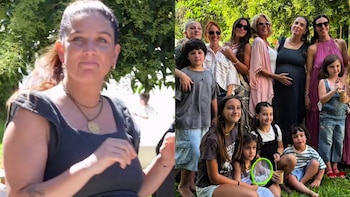
Australian scientists have created a robot that can distinguish alcoholic beverages only by their smell, reported Daily Mail. And no, it's not Bender, the popular party robot from Futurama: his name is NOS.E ('nose', which in its translation into Spanish means nose), and it is practically a nose that distinguishes between brands, origins and styles.
Dr. Steven Su, from the University of Technology in Sydney, Australia, specifically from the School of Biomedical Engineering, has been leading the entire process of this creation.

“So far, spotting the differences between whiskeys has required a trained whisky connoisseur, who could still be wrong, or complex and slow chemical analysis by scientists in a laboratory,” Su said, in a statement issued by the Sydney University of Technology.
“Therefore, having a quick, easy-to-use, real-time assessment of whisky to identify quality and uncover any adulteration or fraud, could be very beneficial to both high-end wholesalers and buyers,” he added.
NOS.E technology has also been used to detect illegal parts of animals sold on the black market, such as the horn of a black rhino. It also has great potential for health enforcement and disease detection.
The NOS.E system for distinguishing different types of alcoholic beverages
How does it work? It has eight gas sensors to detect odors. Based on the odor molecules in the sample, the sensor array creates a single signal matrix.
This is sent, as explained by Daily Mail, to an analytical computer (the one shown in the photo). Thanks to a machine learning algorithm, the main characteristics of different alcoholic beverages can be recognized.

The researchers led an experiment with six different types of whiskeys: three mixed malts (roasted barley for the manufacture of the drink) and three single malt whiskies. They worked with the red and black labels, Ardberg, Chivas Regal and the 12-year-old Macallan's.
In less than four minutes, the University of Sydney robot was able to obtain beverage results with 100% accuracy for the place of origin, 96.15% for brands and 92.31% for style, as mentioned in previous paragraphs.
The robot will navigate the oceans and help discover new marine species
It looks more like a pill than a robot made with artificial intelligence (AI), but Carl-bot, the device on which a team of researchers from Caltech, ETH Zurich and Harvard, promises the study and exploration of the ocean with greater accuracy.
Unlike other robots and devices used by scientists to study the oceans, Carl-bot offers a special feature: thanks to its artificial intelligence, its creators want it to be autonomous and able to move freely throughout the ocean territory.
Not like a fish would drift through the sea, but by monitoring water conditions and taking advantage of reinforcement learning (RL) networks; which unlike conventional neural networks, are not trained with a statistical data set, but based on experience accumulated over time.

AI performance has been tested through simulations that simulate vortices and teach you how to take advantage of low-speed regions by evaluating information from your environment. This is because, in the future, Carl-bot will depend mainly on the data it obtains using gyroscopes and accelerometers.
In addition to perfecting AI, the team has started experimenting with the robot itself. After testing it for the first time in a small, well-controlled environment, it moved to a larger tank and in the future they plan to test the device in a pool with jets capable of generating horizontal currents and in which Carl-bot can move vertically, or learn to be at certain depths with various currents.
KEEP READING
Últimas Noticias
Debanhi Escobar: they secured the motel where she was found lifeless in a cistern
Members of the Specialized Prosecutor's Office in Nuevo León secured the Nueva Castilla Motel as part of the investigations into the case

The oldest person in the world died at the age of 119
Kane Tanaka lived in Japan. She was born six months earlier than George Orwell, the same year that the Wright brothers first flew, and Marie Curie became the first woman to win a Nobel Prize

Macabre find in CDMX: they left a body bagged and tied in a taxi
The body was left in the back seats of the car. It was covered with black bags and tied with industrial tape
The eagles of America will face Manchester City in a duel of legends. Here are the details
The top Mexican football champion will play a match with Pep Guardiola's squad in the Lone Star Cup

Why is it good to bring dogs out to know the world when they are puppies
A so-called protection against the spread of diseases threatens the integral development of dogs


